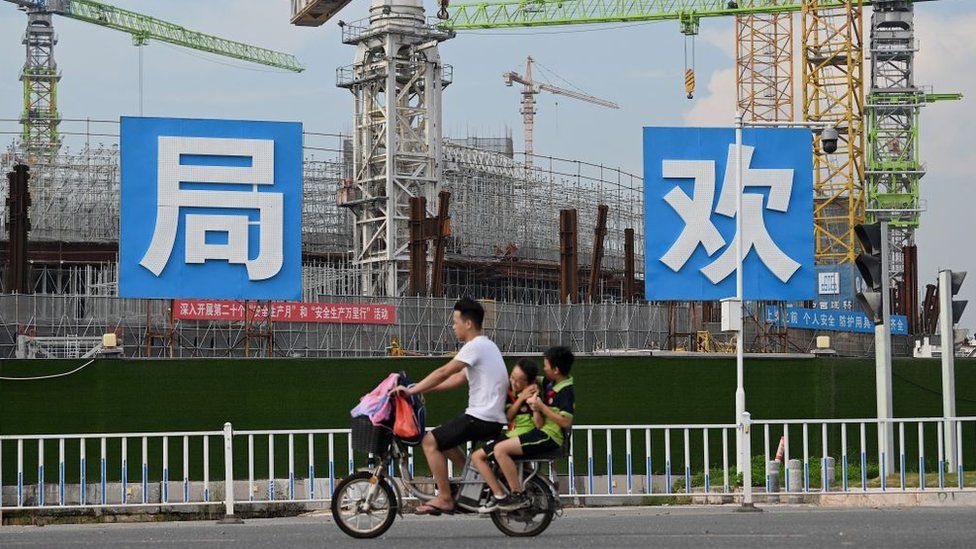-

-
-
Loading

Loading

The chairman of Evergrande, the world's most indebted company, has reportedly been placed under police surveillance, adding to the growing crisis. This comes after other current and former executives of the Chinese property giant were detained. As a result, Evergrande suspended trading of its shares in Hong Kong. The company has been struggling since being declared in default earlier this year, triggering a real estate market crisis in China. Evergrande, which was founded by businessman Hui Ka Yan in 1996, now owns over 1,300 projects in 280 cities across China. It has expanded into various sectors including wealth management, electric cars, food and drink manufacturing, and even owns a major football team. Hui was once Asia's richest person, but his wealth has since plummeted. Evergrande's aggressive borrowing of over $300 billion has led to its current financial difficulties. New rules introduced by Beijing in 2020 to control debt levels of real estate developers forced Evergrande to offer major discounts on its properties to generate income. However, it is now struggling to meet interest payments on its debts, causing its shares to lose over 99% of their value in the past three years. The company filed for bankruptcy in the US in August in an attempt to protect its assets while negotiating with creditors. The potential collapse of Evergrande could have severe consequences, including financial losses for property buyers and business partners, a credit crunch, and a negative impact on China's financial system. Some analysts believe Beijing may intervene to ensure the survival of Evergrande's core business, while others argue that the government should not provide a bailout. Regardless, a resolution for Evergrande's financial woes will have significant implications for China's economy and foreign investors.